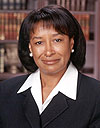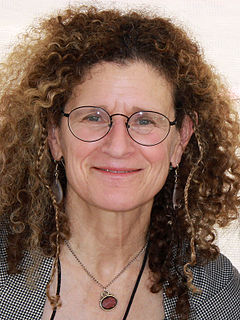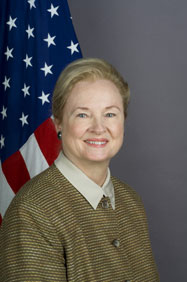Top 259 Civility Quotes & Sayings - Page 5
Explore popular Civility quotes.
Last updated on November 17, 2024.
Because I could not stop for Death, He kindly stopped for me; The carriage held but just ourselves And Immortality. We slowly drove, he knew no haste, And I had put away My labour, and my leisure too, For his civility. We passed the school where children played, Their lessons scarcely done; We passed the fields of gazing grain, We passed the setting sun. We paused before a house that seemed A swelling of the ground; The roof was scarcely visible, The cornice but a mound. Since then 'tis centuries; but each Feels shorter than the day I first surmised the horses' heads Were toward eternity.
What matters at this stage is the construction of local forms of community within which civility and the intellectual and moral life can be sustained through the new dark ages which are already upon us. And if the tradition of the virtues was able to survive the horrors of the last dark ages, we are not entirely without ground for hope. This time however the barbarians are not waiting beyond the frontiers; they have already been governing us for quite some time.
Manlius ... took care in his invitations, actively sought to exclude from his circle crude and vulgar men like Caius Valerius. But they were all around; it was Manlius who lived in a dream world, and his bubble of civility was becoming smaller and smaller. Caius Valerius, powerful member of a powerful family, had never even heard of Plato. A hundred, even fifty years before, such an absurdity would have been inconceivable. Now it was surprising if such a man did know anything of philosophy, and even if it was explained, he would not wish to understand.
The notion of political correctness has ignited controversy across the land. And although the movement arises from the laudable desire to sweep away the debris of racism and sexism and hatred it replaces old prejudices with new one. It declares certain topics off-limits, certain expressions off-limits, even certain gestures off-limits. What began as a crusade for civility has soured into a cause of conflict and even censorship.
Some things are apparent. Where government moves in, community retreats, civil society disintegrates and our ability to control our own destiny atrophies. The result is: families under siege; war in the streets; unapologetic expropriation of property; the precipitous decline of the rule of law; the rapid rise of corruption; the loss of civility and the triumph of deceit. The result is a debased, debauched culture which finds moral depravity entertaining and virtue contemptible.
I think the things that are more painful to me are not the intrusion of paparazzi, it's the lack of civility that I find more intimidating and far more painful an experience. It's the lack of critical thinking. It's the endless snarky, mean way we talk about each other, we approach each other. The anonymity of being cruel, the delight in tearing people down. The tabloid era that we find ourselves in is a cultural boneyard, and that is painful to me.
They were within twenty yards of each other, and so abrupt was his appearance, that it was impossible to avoid his sight. Their eyes instantly met, and the cheeks of each were overspread with the deepest blush. He absolutely started, and for a moment seemed immoveable from surprise; but shortly recovering himself, advanced towards the party, and spoke to Elizabeth, if not in terms of perfect composure, at least of perfect civility.
I've spent my life living in rural America, some of it in blue state Vermont, some of it in red state upstate New York. They're quite alike in many ways. And quite wonderful. It's important that even in an urbanized and suburbanized country, we continue to take rural America seriously. And the thing that makes Vermont in particular so special, and I hope this book captures some of it, is the basic underlying civility of its political life. That's rooted in the town meeting. Each of the towns in Vermont governs itself.
Her companion's discourse now sunk from its hitherto animated pitch, to nothing more than a short, decisive sentence of praise or condemnation on the face of every woman they met; and Catherine, after listening and agreeing as long as she could,with all the civility and deference of the youthful female mind, fearful of hazarding an opinion of its own in opposition to that of a self-assured man, especially where the beauty of her own sex is concerned, ventured at length to vary the subject.
Let’s not forget that American democracy started with ‘We the People’ agreeing to work hard to create ‘a more perfect union.’ We’ve lost the idea that politics begins at home with what happens in families, in neighborhoods, in classrooms, in congregations. We called this democracy into being – and if we want to call this democracy back to its highest values, it’s got to be the us doing that calling. That’s not going to happen if ‘We the People’ don’t know how to talk to one another with civility and hold our differences in a creative, life-giving way.
Mitchell Sanders was right. For the common soldier, at least, war has the feel-the spiritual texture-of a great ghostly fog, thick and permanent. There is no clarity. Everything swirls. The old rules are no longer binding, the old truths no longer true. Right spills over into wrong. Order blends into chaos, love into hate, ugliness into beauty, law into anarchy, civility into savagery. The vapors suck you in. You can't tell where you are, or why you're there, and the only certainty is overwhelming ambiguity.
Because love is the great commandment, it ought to be at the center of all and everything we do in our own family, in our Church callings, and in our livelihood. Love is the healing balm that repairs rifts in personal and family relationships. It is the bond that unites families, communities, and nations. Love is the power that initiates friendship, tolerance, civility, and respect. It is the source that overcomes divisiveness and hate. Love is the fire that warms our lives with unparalleled joy and divine hope. Love should be our walk and our talk.
So let us begin anew -- remembering on both sides that civility is not a sign of weakness, and sincerity is always subject to proof. Let us never negotiate out of fear, but let us never fear to negotiate. Let both sides explore what problems unite us instead of belaboring those problems which divide us.
The first rule of etiquette a boy learns when he's about to enter society is that civility is due to all women. No provocation, no matter how unjust and rudely delivered, can validate a man who fails to treat a woman with anything less than utmost courtesy." The boys hung on his every word. He glanced in her direction. "I have met some incredibly unpleasant women, and I have never failed in this duty. But I must admit: your sister may prove my undoing.
... indeed, what reason may not go to school to the wisdom of bees, ants, and spiders? What wise hand teacheth them to do what reason cannot teach us? Ruder heads stand amazed at those prodigious pieces of nature, whales, elephants, dromedaries, and camels; these, I confess, are the colossuses and majestick pieces of her hand; but in these narrow engines there is more curious mathematieks; and the civility of these little Citizens more neatly sets forth the wisdom of their Maker.
Never far from a dining table, the characters in Heather A. Slomski's limpid and elegant debut collection are not given to melodramatics. Civility reigns, voices are not raised, much goes unsaid. But just beneath the sophisticated composure are longing, loss, heartbreak. And how intensely familiar is the table itself, which made this reader suddenly understand how much of our real life takes place there. Heather A. Slomski is truly a fresh voice on the scene, and The Lovers Set Down Their Spoons is that rare thing, a new book as innovative in its design as it is compulsively readable.
Civility, which is a disposition to accommodate and oblige others, is essentially the same in every country; but good breeding, asit is called, which is the manner of exerting that disposition, is different in almost every country, and merely local; and every man of sense imitates and conforms to that local good breeding of the place which he is at.
The Second World War had a precipitating effect in that it discredited the empires, as well as bankrupting them. Not only could you no longer, if you were a colonial subject of France in Africa, look to France as a model of power and influence and civility after what had happened in the war. Nor could the French any longer afford to run their empire. And nor could the British, although they were not discredited in the way that the French were.
It is becoming plain that our liberal regime of equality and personal freedom depends, more than most theorists of liberalism have been willing to admit, on the existence and support of certain social assumptions and practices: the belief that each and every human being possesses great and inherent value, the willingness to respect the rights of others even at the cost of some disadvantages to one's self, the ability to defer some immediate benefits for the sake of long-range goals, and a regard for reason-giving and civility in public discourse.

















